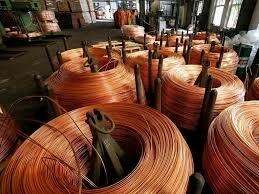By Andrew Chung
WASHINGTON (Reuters) – President Donald Trump’s trade fight with China moved inside the white marble walls of the U.S. Supreme Court on Tuesday, where lawyers for both countries faced off over whether Chinese companies can be held liable for violating U.S. antitrust laws.
The nine justices heard arguments in an appeal by two American companies of a lower court ruling that threw out claims of price fixing against two Chinese vitamin C manufacturers based on submissions by China’s government explaining that nation’s regulations.
The arguments provided both countries an opportunity to air their differences over an aspect of their trade relationship. The Supreme Court took the unusual step on April 13 of granting China the ability to present arguments even though it is not an official party in the case. Typically, only the U.S. government is reserved that privilege.
The world’s two economic superpowers are engaged in an escalating trade fight. The United States, accusing China of unfair trade practices and theft of intellectual property, has threatened to impose tariffs on up to $150 billion of Chinese industrial and other imports. China has threatened comparable retaliation against U.S. exports if Washington pushes ahead with the tariffs.
None of the heated rhetoric over tariffs trickled into Tuesday’s arguments, which remained respectful. The lawyer representing China, Carter Phillips, urged the justices to defer to China’s explanation about Chinese regulations. A U.S. Justice Department lawyer said that such deference comes with limits.
Fusion Media or anyone involved with Fusion Media will not accept any liability for loss or damage as a result of reliance on the information including data, quotes, charts and buy/sell signals contained within this website. Please be fully informed regarding the risks and costs associated with trading the financial markets, it is one of the riskiest investment forms possible.
Source: Investing.com


























